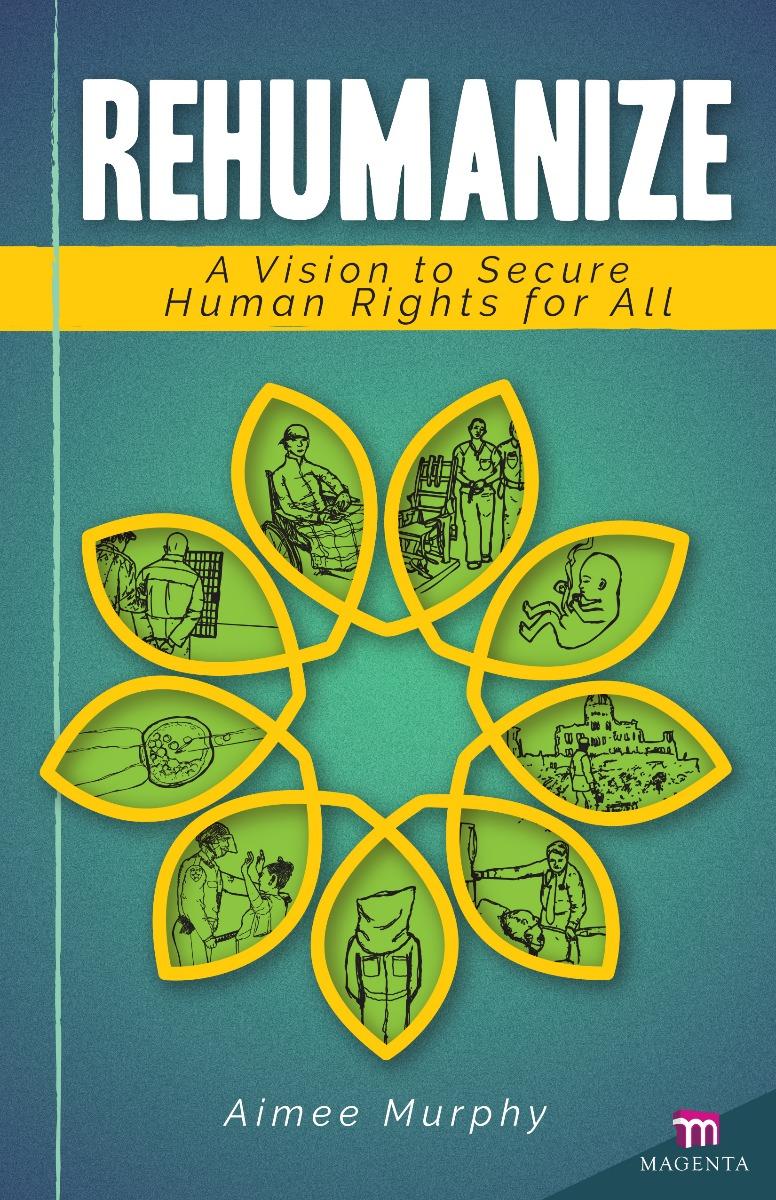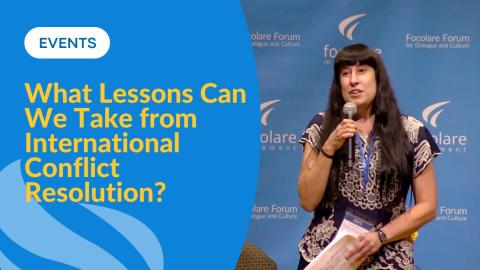
Photo by Eekim | wikipedia.org
In the wake of the horrific October 7 terrorist attack in Israel, and the ensuing violent conflict between Israel and Hamas, many university and college campuses have experienced strong tensions. We work together in the Campus Ministry office at Georgetown University Law Center. In our work to accompany students, staff, and faculty with a variety of often strongly held opinions and positions, we offered the following suggestions to help members of our community slow their pace in order to reflect on how to create conditions for fruitful dialogue.
In the weeks before Thanksgiving, the school sweetened the deal—offering free pie to groups of six who signed up to have a conversation across any kind of difference: political, ethnic, racial, religious, social. Prompts for the exercise included these questions, together with more light-hearted ice-breakers for groups not yet prepared to discuss more difficult topics. More than 400 people participated.
Am I ready to have a conversation that might become tense, challenging, or difficult in some other way?
Questions for Reflection
1. Do I desire / am I ready to have a conversation that might become tense, challenging, or difficult in some other way?
Notice there are two parts to the question. You may desire to have a conversation, but for other reasons, you may also realize that it is not the right time. Take a moment (or a couple of breaths) to notice your physical, psychic, emotional, and spiritual conditions and limits, and if necessary, give yourself permission to wait to have a difficult conversation until conditions are better.
Further, if you start the conversation thinking that you and your conversation partner are both ready, but then realize that the conditions in you or your conversation partner are not conducive to continuing the conversation, give yourself and/or your partner permission to pull back and possibly reschedule.
2. Consider the benefits of lowering your expectations.
Some aspects of current communications and social media habits have conditioned some (or many) people to come into conversations with an expectation that their position will be unconditionally accepted, with no questions asked (think thumbs up, or “like”). At times they are disappointed, or perhaps even paralyzed, when the encounter with another person is more complex or fraught. Reflect on how to prepare yourself for less than full agreement on some aspects of the topic that you are discussing.
3. Consider the benefits of meeting in person, in a pair, or a very small group.
In larger groups, it can be difficult to avoid the complexity of “performing” your position before others with whom you are in agreement. It can also be hard not to over-worry the extent to which your efforts to listen deeply to another person with whom you disagree might be misconstrued by others as agreement, or as enabling their position. Pairs and smaller groups can help to reduce those distractions so that you can both focus your energy on working to understand each other, even in areas of disagreement.
In larger groups, it can be difficult to avoid the complexity of “performing” your position before others with whom you are in agreement.
4. Put yourself in the position of the person you are about to engage.
What dimensions of the topic might be causing your conversation partner to feel shame or fear? Appreciate that if the conversation moves into these dimensions, they may feel the need to “cover” themselves, or protect themselves in some way, as a precondition for engagement in a productive conversation. Consider how to be sensitive to these realities, and perhaps even whether you might be ready to help foster conditions in which the other person appreciates your understanding of the sensitivity or complexity that may lead to feelings of shame or fear. (You may wish to find a way to say something like, “I appreciate that not all [people of a certain group] believe X.”)
5. Shift from a focus on “What do you think?” or “Why do you believe X?” to “Where are you?”
Prior to talking about the difficult issue, spend some time asking each other, “Where are you?” “How are you doing?” “What are you feeling right now?” “Is your family okay?” Also consider easing into the topic by trying to understand “where” is the other person in regards to the topic: for example, “What concerns you most about this topic right now?” “What is at stake for you in this conflict?” Or perhaps even: “What worries you most about stepping into this conversation with me right now?”
Mutual openness to questions of this kind can help to establish more trust for a deeper and more productive conversation.













